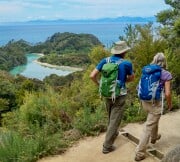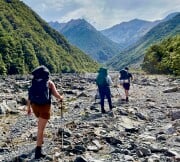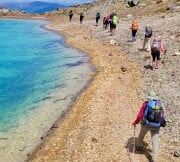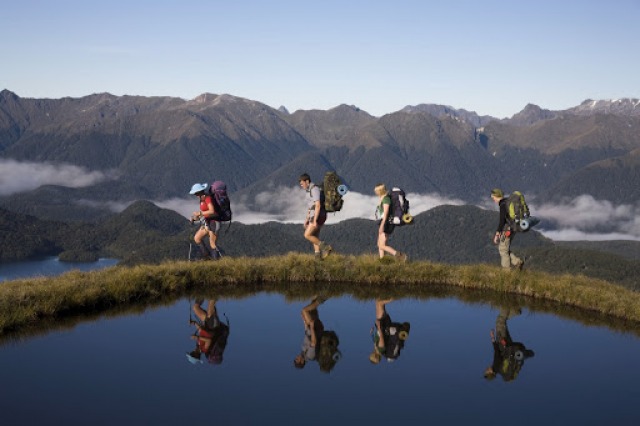- About Us
-
Trips
-
 Kiwi-Style Hiking
Kiwi-Style Hiking
-
 Great Walks
Great Walks
-
 Hiking Tours
Hiking Tours
-
 Alpine Hikes
Alpine Hikes
-
 Custom Groups
Custom Groups
- Huayhuash Trek
- Family Northern Explorer
- Family Southern Explorer
- Lake Waikaremoana Hike
- Women's Custom Tours
- Women's Southern Wilderness
- Coast, Canyons and Mountains
- Coastal Wanderer Custom Tour
- Don't Cross the Ladies
- Secret South Custom Tour
- Tekapo Hike
- West Coast Custom Tour
- World Heritage Custom Tour
-
- Blog
- Shortlist
- About Us
- Trips
- Blog
- Shortlist

Apr 19, 2019
Hiking is the perfect way to be immersed in the stunning wilderness. Nature can be very delicate so it is important to be as eco-friendly as possible.
Here is our Hiking New Zealand guide to backcountry etiquette and minimizing your impact on the environment while out enjoying the wilderness.
Carry out your rubbish
Do not leave any rubbish behind when in the wilderness, instead carry it all out. Do not burn your plastic waste, as some types will create ozone-harming gases. Litter is unattractive, can be harmful to wildlife and can increase vermin and disease.
| You can always spend your time wisely reading a Hiking New Zealand brochure |
Bury toilet waste
If there are toilet facilities nearby then use them, if not, bury your toilet waste in a shallow hole well away from waterways, tracks, campsites and huts. In Mount Cook National Park you are now required to carry out your waste or use provided toilet facilities.
Campfires
In many areas there are fire bans in summer so bring along portable fuel stoves instead. If you use a fire then keep it small and only use dead wood. When you have finished, make sure the fire is properly out by wetting the ashes, then checking nothing is left smoldering. If you haven't used an established fireplace then remove rocks and other traces of the fire before leaving.
Do not pollute lakes and streams
When cleaning and washing, take the water and wash well away from the water source, this way the used water drains into the soil which acts as a filter. If you suspect a water source may be contaminated then boil it for at least three minutes, or else treat it chemically or with a special filter before drinking it.
| Secret South Safari - Sleeping under a fly on the Ohau Range. |
Camp carefully
When leaving your camp make sure there is no trace left behind of your visit.
 |
| Secret South Safari - photo courtesy of Photographer Robert Lapalme |
Follow the track
Keep to the track where one exists as this prevents damaging fragile plants.
| Sea Lions in the Catlins |
Protect plants and animals
It is illegal to kill endemic species (creatures only found in NZ) and to remove plants from National Parks. Treat New Zealand's native forests and animal life with care and respect.
Respect our cultural heritage
Treat any places that have spiritual or historical significance with care and respect.
| Hut life - a chance to meet new people and share tall stories |
Have consideration for others
Many people visit New Zealand's wilderness and backcountry areas. Be considerate to other visitors who also have a right to enjoy these areas. This is especially so when using huts and camping areas as nobody has exclusive right to them. You must always be prepared to make room for others.
Enjoy your visit into the wilderness and remember to take a last look before leaving an area; will the next visitor know you have been there?
| West Coast Wilderness Safari - the next visitor wont know you have been there if you have been eaten by the rock whale. |







